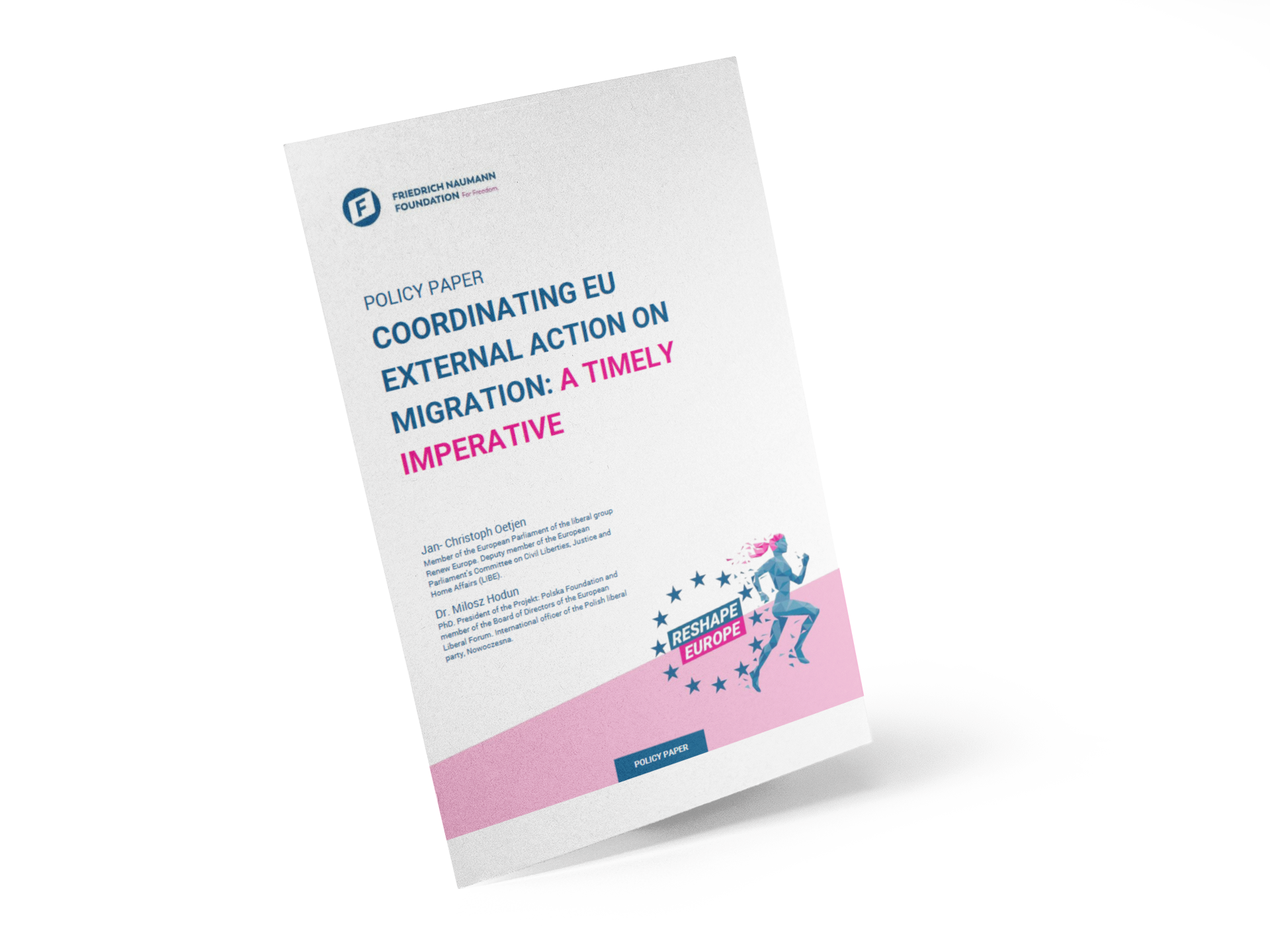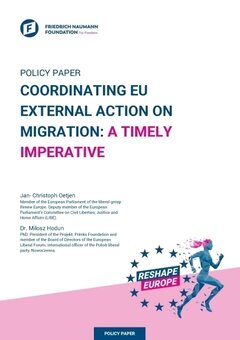Reshape Europe
Coordinating EU External Action on Migration

Migration is among the most pressing topics on the international agenda today. Worldwide almost 300 million people live outside their home country, and it is estimated that ca. 65 million people have been displaced by violence and forced to choose irregular pathways of migration. 20 million of them are refugees. It is a global challenge that does not bypass any continent. In recent years, Europe has had to face the most severe migratory emergency since World War II. In 2015 and 2016, ca. 2,6 million first-time asylum applicants were registered in the European Union (EU). The numbers decreased in the following years to dramatically raise again in 2022 as a result of the Russian full-scale aggression on Ukraine.
Large movements of refugees and migrants affect the entire EU and all its Members States. Nonetheless, some political leaders have refused to see it as a common concern, clearing themselves of responsibilities for the future of Europe. Short-sighted, often cynical, politicians have blamed for the crisis their counterparts in other regions of Europe, building new conflicts between states and peoples. More specifically, Eastern Europeans became opposed to Southern Europeans, and vice versa. Eastern Europe did not understand what was happening in the Mediterranean, why they should contribute to finding a solution for a crisis that was taking place on idyllic islands, why they should host people invited by Western and Northern European governments. In turn, Southern Europeans did not understand why they should listen to these nations on the Eastern frontier, why they should pay attention to the far-away border of Belarus and orders coming from Moscow. The lack of communication and solidarity resulted with deepening divisions and increased costs.
The latter ones were not only purely financial, but foremost political and from the area of security. Without common response the EU became vulnerable to its internal and external enemies. Not only all kinds of dictators and warlords could hit the EU using people who desperately wanted to come to Europe, but also anti-European, anti-liberal and anti-democratic forces within Member States grew in strength. Encouraged by lack of European solidarity and coordination during the crisis, enemies of the European integration gained a greater foothold. Extremist parties and right-wing populists won sits in parliaments all over Europe and formed governments, i.a. in Hungary, Poland and Italy. Consequences of this success have been severe for the EU, its stability and development.

